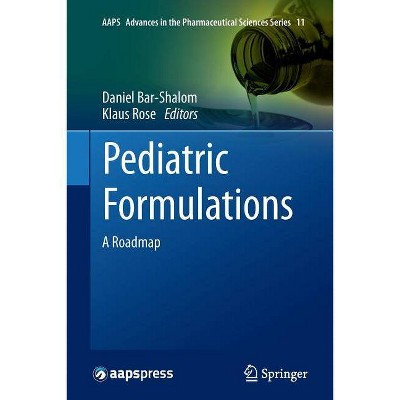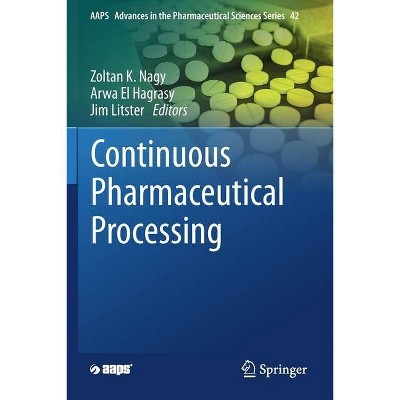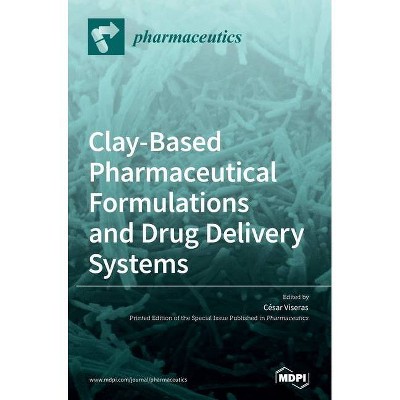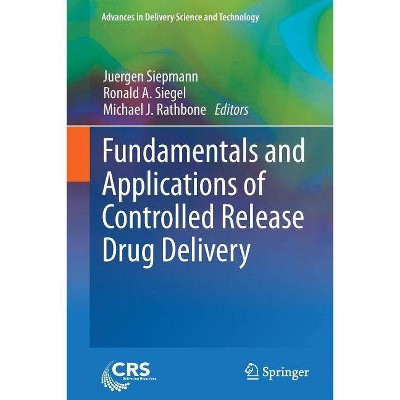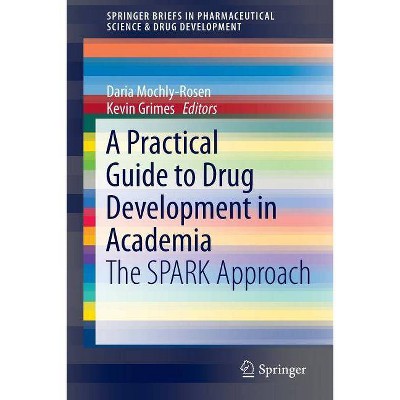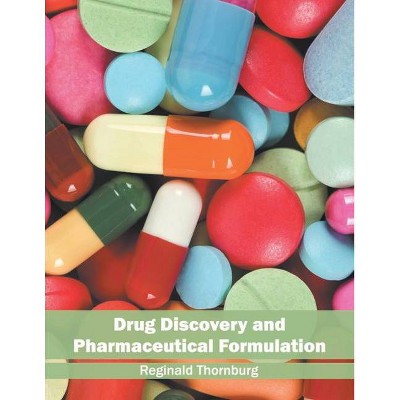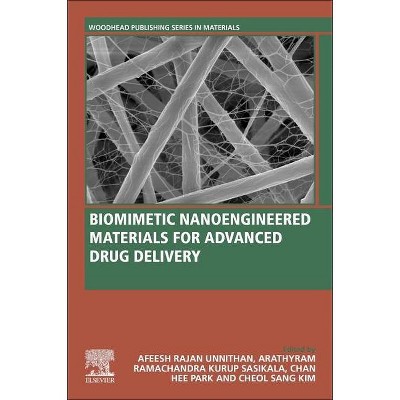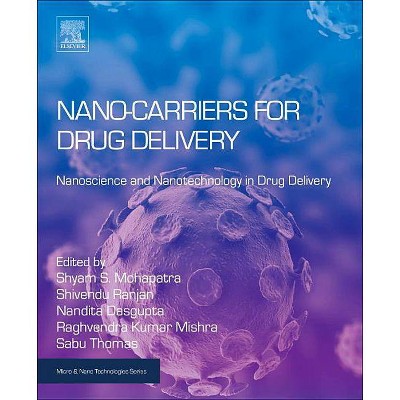Drug Delivery to the Brain - (Aaps Advances in the Pharmaceutical Sciences) (Paperback)
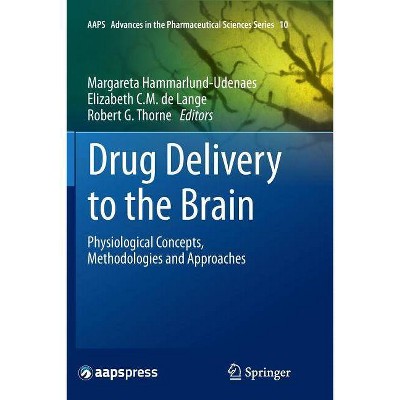
Similar Products
Products of same category from the store
AllProduct info
<p/><br></br><p><b> About the Book </b></p></br></br>In this book, experts in the field describe the different approaches for drug delivery to the brain with an emphasis on the physiology of the blood-brain barrier (BBB) and the governing principles and concepts for drug delivery across the BBB.<p/><br></br><p><b> Book Synopsis </b></p></br></br>The development of new CNS drugs is notoriously difficult. Drugs must reach CNS target sites for action and these sites are protected by a number of barriers, the most important being the blood -brain barrier (BBB). Many factors are therefore critical to consider for CNS drug delivery, e.g. active/passive transport across the BBB, intra-brain distribution, and central/systemic pharmacokinetics, to name a few. Neurological disease and trauma conditions add further complexity because CNS barriers, drug distribution and pharmacokinetics are dynamic and often changed by disease/trauma. Knowledge of all these factors and their interplay in different conditions is of utmost importance for proper CNS drug development and disease treatment. In recent years much information has become available for a better understanding of the many factors important for CNS drug delivery and how they interact to affect drug action. This book describes small and large drug delivery to the brain with an emphasis on the physiology of the BBB and the principles and concepts for drug delivery across the BBB and distribution within the brain. It contains methods descriptions for studying drug delivery, routes and approaches of administering drugs into the brain, the influence of disease, and drug industry perspectives. Therewith, it contributes to an in-depth understanding of the interplay between brain (patho)-physiology and drug characteristics. Furthermore, the content is designed to be both cutting-edge and educational, so that the book can be used in high-level training of academic and industry scientists with full references to original publications. <p/><br></br><p><b> From the Back Cover </b></p></br></br><p>This book describes the different approaches for drug delivery to the brain with an emphasis on the physiology of the blood-brain barrier (BBB) and the governing principles and concepts for drug delivery across the BBB. It contains cutting-edge methods for studying drug delivery and administering drugs into the brain. The book also explores different approaches for predicting human brain concentrations as well as the influence of disease and drug industry perspectives. In addition to wide-ranging coverage of physiological concepts relevant to central nervous system (CNS) drug delivery, a detailed review of brain structure, function, blood supply and fluids is also provided. In each chapter, descriptions of future challenges and unresolved questions are combined with points for discussion. This unique combination of material makes this book a valuable resource for students and for established academic and industry scientists looking to learn about state-of-the-art drug delivery research. It is also a source for stimulating new ideas among experts already performing CNS drug delivery research or working in related areas.</p><p> </p><p><b>Margareta Hammarlund-Udenaes</b> (Ph.D.) is a Professor in Pharmacokinetics and Pharmacodynamics (PK/PD) at Uppsala University and the Head of the Translational PK/PD Group. Her research is focused on studying pharmacokinetic aspects of BBB transport of drugs in relation to CNS effects, and it has led to the development of new concepts and methods within the BBB transport area, focusing on unbound drug relationships. </p><p> </p><p><b>Elizabeth C.M. de Lange</b> (Ph.D.) is Head of the Target Site Equilibration Group at the Division of Pharmacology of the Leiden Academic Center for Drug Research (LACDR). Her research program focuses on the development of generally applicable predictive PK/PD models on CNS drugs using advanced in vivo animal models and mathematical modeling techniques, with a number of recent successes. </p><p> </p><p><b>Robert G. Thorne</b> (Ph.D.) is an Assistant Professor in Pharmaceutical Sciences at the University of Wisconsin-Madison School of Pharmacy. He was previously a research scientist and faculty member in the Department of Physiology & Neuroscience at the New York University School of Medicine. His research focuses on diffusive and convective transport within the CNS and the development, refinement and optimization of strategies for delivering biologics into the brain. </p><p><p/><br></br><p><b> About the Author </b></p></br></br><p><b><i>Margareta Hammarlund-Udenaes</i></b> (PhD) is a Professor in Pharmacokinetics and Pharmacodynamics (PKPD) at Uppsala University and the Head of the Translational PKPD Group. Her research is focused at studying pharmacokinetic aspects of BBB transport of drugs in relation to CNS effects, which has led to the development of new concepts and methods within the BBB transport area, focusing on unbound drug relationships. Dr. Hammarlund-Udenaes is an Associate Editor of Pharmaceutical Research and a member of the Editorial Advisory Board of Journal of Pharmaceutical Sciences and Fluids and Barriers of the CNS. She became an American Association of Pharmaceutical Scientists' Fellow in 2005. She is a frequent lecturer at conferences and in drug industry. Her company gives courses and advice in PKPD and BBB transport issues. She co-founded and has co-chaired several of the International Symposia on Microdialysis, and she is the Chair of the 'Barriers of the CNS' Gordon Conference in 2014.</p><p><b><i>Elizabeth C.M. de Lange</i></b> (PhD) is Head of the Target Site Equilibration Group at the Division of Pharmacology of the Leiden Academic Center for Drug Research (LACDR). Her research program focuses on the development of generally applicable predictive PKPD models on CNS drugs using advanced <i>in vivo</i> animal models and mathematical modeling techniques, with a number of recent successes. She is an Editorial Board member of the journal Fluids and Barriers of the CNS, and an Editorial Advisory Board member of the Journal of Pharmaceutical Sciences and of Pharmaceutical Research. She has been the cofounder and (co-)Chair at the 1<sup>st</sup>, 2<sup>nd</sup> and 5<sup>th</sup> International Symposia on Microdialysis, and has been the Chair of the 9<sup>th</sup> International Conference on Cerebral Vascular Biology (2011). Among many other functions within the American Association of Pharmaceutical Scientists, she is the 2014 Chair of the Annual Meeting Programming Committee. With her company "In Focus" (www.infocus-ecmdelange.nl) she provides courses, training and advice on microdialysis, pharmacokinetics, BBB transport, intra-brain distribution and PKPD relationships.</p><p><b><i>Robert G. Thorne</i></b> (PhD) is an Assistant Professor in Pharmaceutical Sciences at the University of Wisconsin-Madison School of Pharmacy and also serves as a Trainer in the Neuroscience, Cellular & Molecular Pathology, and Clinical Neuroengineering Training Programs at the University of Wisconsin-Madison. Dr. Thorne was previously a research scientist and Faculty member in the Department of Physiology & Neuroscience at the New York University School of Medicine. His background includes a Ph.D. in Pharmaceutics (University of Minnesota) and a B.S. in chemical engineering (University of Washington). His research focuses on diffusive and convective transport within the CNS and the development, refinement and optimization of strategies for delivering biologics into the brain. He is a frequent invited speaker on topics related to CNS drug delivery for organizations within academia, foundations, and the biotechnology and pharmaceutical industry. Dr. Thorne is a founder and Council / Steering Committee member of the International Brain Barriers Society (http: //www.ibbsoc.org/) as well as the 2016 Chair-elect for the 'Barriers of the CNS' Gordon Research Conference. </p>
Price History
Price Archive shows prices from various stores, lets you see history and find the cheapest. There is no actual sale on the website. For all support, inquiry and suggestion messages communication@pricearchive.us
